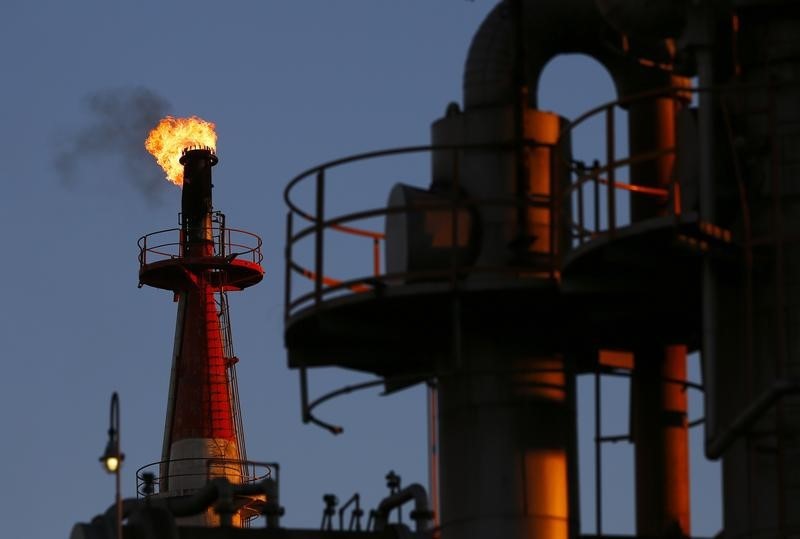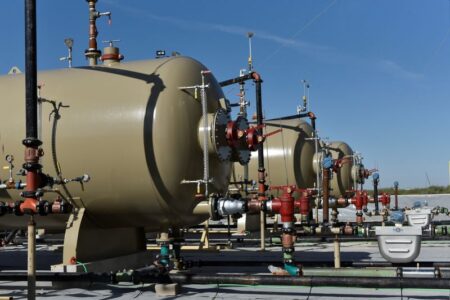Investing.com — Oil prices crept lower in early Asian trade on Wednesday, extending losses into a third straight session as uncertainty over U.S. interest rates kept traders geared towards the dollar.
Industry data signaled that U.S. crude inventories shrank slightly less than expected in the past week, while distillates grew sharply as the travel-heavy summer season comes to a close.
Oil markets also took negative cues from China, with a slew of recent indicators pointing to a slowing economic recovery in the world’s largest oil importer, which is expected to hurt its appetite for crude.
Impatience over more Chinese stimulus measures grew this week after the People’s Bank disappointed markets with a smaller-than-expected interest rate cut.
futures fell 0.1% to $83.83 a barrel, while futures fell 0.1% to $79.55 a barrel by 20:19 ET (00:19 GMT).
But both contracts were still trading higher for the year, buoyed by the prospect of tighter markets after large supply cuts by Saudi Arabia and Russia.
Dollar strengthens with Jackson Hole, PMIs in focus
Strength in the was among the biggest weights on oil prices this week, as markets pivoted into the greenback ahead of more signals on monetary policy. The dollar hit an over two-month high on Tuesday.
Federal Reserve Chair Jerome Powell is set to speak during the on Friday, and potentially offer up more cues on the path of interest rates amid sticky U.S. inflation and a strong labor market.
Analysts warned that Powell could flag an era of higher baseline rates, heralding more pressure on the U.S. economy and potentially weaker oil demand.
While the U.S. is expected to dodge a recession this year, higher-for-longer interest rates are also expected to keep economic activity subdued.
Focus on Wednesday is also on (PMI) readings from the U.S. and other major economies, which are expected to provide more cues on business activity through August.
U.S. inventories shrink slightly less than expected
Data from the (API) showed on Tuesday that U.S. crude inventories shrank by 2.4 million barrels in the week to August 18, against expectations for a draw of 2.9 million barrels.
Distillates inventories – a key indicator of fuel demand, saw a nearly 2 million barrel build, while gasoline inventories shrank slightly.
After seeing a record draw in early-August, U.S. inventories have either risen or seen a slower pace of draws in recent weeks, indicating that demand is cooling with the end of the summer season. Extreme weather conditions across the country have also stymied travel.
is now due later on Wednesday, and is expected to show a 2.8 million barrel draw.
Read the full article here












